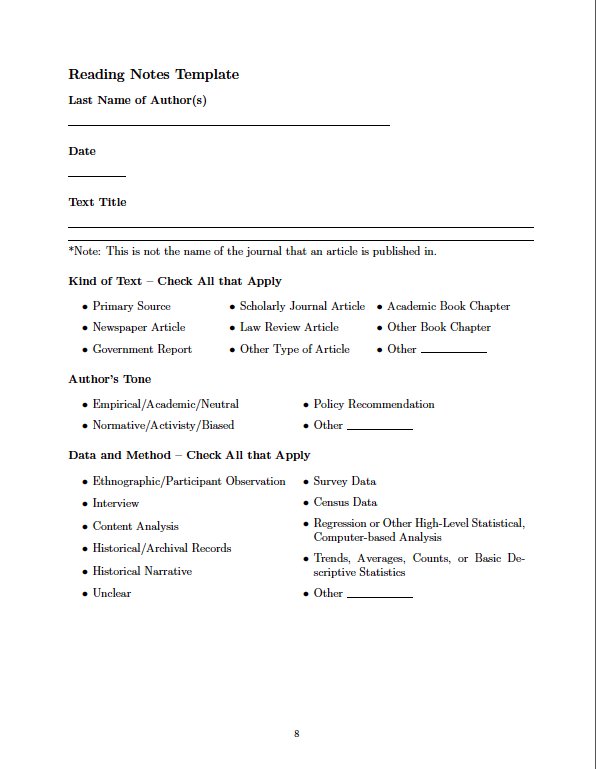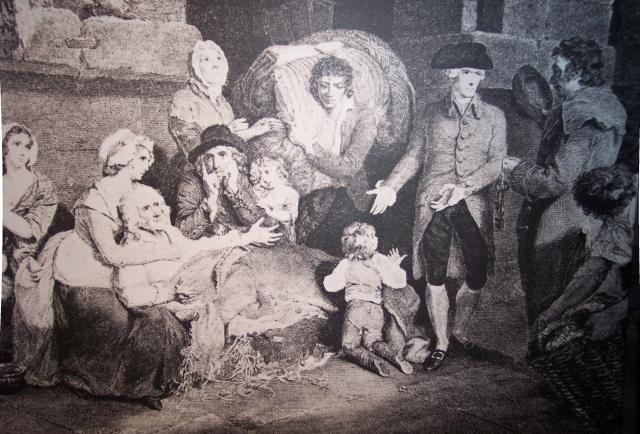
Dr. Ashley T. Rubin
@ashleytrubin
Followers
6K
Following
71K
Media
2K
Statuses
20K
Interdisciplinary law & society scholar of prisons & punishment. Editor, Law & Society Review. Prof @UHM_Sociology. Books: #TheDeviantPrison #RockingQualSocSci
Honolulu, HI
Joined October 2013
Three years ago today, I gave a @TEDx talk on how sending people to prison became normal! I was so nervous, and I skipped a section of my talk, but I got across what I wanted to say: It's weird how much we take prisons for granted, esp given their history.
5
15
73
#internationalstudents: it might not feel like it, but you are appreciated and you belong here. You enrich our universities and classrooms, our cities and towns with your presence. It is our privilege to teach you and host you. --Your profs.
11
224
837
It has arrived! Thank you so much, @stanfordpress! The book is beautiful! #RockingQualSocSci #NoOneRightWay #RigorousDoesntMeanRigid #AreYouADirtbagger?
21
31
403
Finally, my book lays out the myriad ways to do good qualitative research, whether you're working with interviews, ethnography, or historical and text-based (including online) research. #TheresNoOneRightWay.
14
28
330
Wow, people really liked my reading guide template for students. So, here are some slides from lecture about getting through the reading. #Thread.
10
87
300
First up, @KathleenGerson and @SarahDamaske give you everything you need for interview-based studies!.
3
17
279
Breaking news for Law & Society Review! (@law_soc) We are no longer counting references against the word limit. Moving forward, the new word limit is 12,500 for the main text (exclusive of references, appendices, and tables). No more trimming citations to fit the word count!.
10
27
264
Second, @AnnetteLareau offers a cradle-to-grave overview of how to do research with living subjects (i.e., interview and participant observation).
3
21
257
Third, @MarioLuisSmall and @JessicaCalarco explain the much-needed task of evaluating qualitative research (especially not just importing rote standards from the quant world), focusing on interview-based and ethnographic research.
2
20
245
Squeal!! My first book's cover is ready!! #TheDeviantPrison is coming! cc. @easternstate @cambUP_History
23
21
223
I am THRILLED to see my #qualmeth book, #RockingQualSocSci, is on the @stanfordpress website! And check out that awesome cover art!! (It's not me, btw.) #methods #sociology #criminology #interdisciplinary
16
26
181
Hey #academictwitter! If your department is like mine, you're putting in your book orders for next fall. If you're teaching #QualMeth, keep an eye out for my book #RockingQualSocSci. I'm definitely happy to talk to anyone interested in using it for their class!
7
30
169
It happened! I submitted the final draft of my book manuscript (#TheDeviantPrison) about Eastern State Penitentiary to @CUPAcademic. Should be out by the end of 2020 if all goes well!
12
3
117
I am super excited to announce a new blog series on the @Punishment_CRN blog: "Are you a criminologist or a sociologist?" 20 fantastic scholars have responded to this prompt with their take on the question, the tensions it raises, and how they identify.
8
41
114
Woohoo! Manuscript approved and heading on to production!! Will update when I get the pub date. Also looking forward to sharing a cover image when I have it!.
It happened! I submitted the final draft of my book manuscript (#TheDeviantPrison) about Eastern State Penitentiary to @CUPAcademic. Should be out by the end of 2020 if all goes well!
11
2
110
Holy shit! The blurbs for my book #thedeviantprison are up! I have really wonderful comments from #DavidGarland, #MonaLynch, and #JoshuaPage! There are literal tears in my eyes right now. Thank you to them and @CUPAcademic for lining up these incredible scholars!
13
6
108
Interdisciplinarity is great, but have you tried being more international in your reading? #AcademicTwitter.
6
26
116
I am so excited to be part of this amazing editorial team for a phenomenal journal representing an amazing field. I am seriously humbled to be following so many amazing editors that came before us. Our team will have more to say soon!!.
LSA is pleased to announce that Katharina Heyer, Ashley Rubin, and Shauhin Talesh have been selected as the new incoming editors of the Law & Society Review.
11
4
109
One of the weird things about studying prison history is how many things we do today that we used to do and abandoned bc it was "barbaric" or "uncivilized" or just plain wrong. Shall I start a thread?.
In case anyone is wondering, this is the more recent story about this happening in CA prisons from 2006-2010
6
48
106
Our first issue as editors of Law & Society Review is now officially published!!! h/t @law_soc Many wonderful articles in this issue.
6
17
110
Hey Twitter friends! Are you teaching soc sci methods this year? Please consider using my new book. It's meant to be a fun read with lots of (new and recurring) examples and explains all the things that always tripped me up. And it covers a range of approaches to QM!.
It has arrived! Thank you so much, @stanfordpress! The book is beautiful! #RockingQualSocSci #NoOneRightWay #RigorousDoesntMeanRigid #AreYouADirtbagger?
4
13
102
Hi #academictwitter friends! My #qualmeth book is going to drop in August 2021. I'd be more than happy to do a (probably virtual?) book talk or a workshop breaking down #qualitative #methods in the 2021-2022 school year!
7
12
101
Holy shit, when did this happen?! My book, #TheDeviantPrison, is out! If you have access to @cambUP_History Cambridge Core, it's up online! You can read it!
9
16
85
I'd love to talk about my book #RockingQualSocSci more and I feel like I've perfected my book talk! If anyone is looking to fill last-minute spots in their virtual colloquium series this year, I'm flexible---and I can make multiple time zones!
6
14
81
If you are lost for inspiration and the literature isn't inspirng you, more inductively, write memos about your data. (See ch in #RockingQualSocSci) What observations are you generating? What insights? What are they telling you about how things work, not just how things are?.
1
6
88
WTF? I just left a white manel with race/ethnicity in the title on a topic on which many POC and female scholars (incl WOC) have done great research. It was an *invited* panel. #ASA19.
10
7
79
@SarahTaber_bww Interesting! It took previously untrained prisoners about 1-2 years to become proficient in craft work (shoemaking, cabinetmaking)--traditionally recognized as skilled labor--according to 19th c prison managers.
0
5
69

























